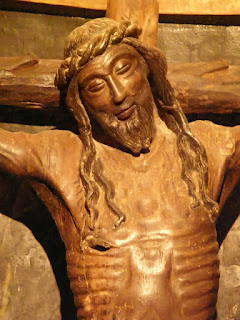"Please—tame me!"
I
n Chapter 21 of "The Little Prince," the young prince encounters a fox, creating one of the most memorable and endearing parts of the book. The fox introduces the prince to the concept of "taming" or forming meaningful bonds with others. "Please—tame me!" the fox requests, explaining that to tame someone is to establish ties that render the other person unique and significant. Through their interaction, the Little Prince learns how such relationships confer specialness on someone, adding depth and meaning to our lives.
This scene can be likened to the earthly life of our Lord, paralleling the moment of taming with Christ establishing a relationship between humanity and God. Similar to how the fox becomes unique to the Little Prince, we become unique in the eyes of Christ. "Please—tame me!" says Jesus, just like the fox, asking us to form a bond with him.
Why is it crucial for God to establish such ties with us? Initially, the fox was just another fox to the Little Prince, and similarly, the Little Prince was just another boy to the fox. But through taming, they become uniquely special to each other. This transformation mirrors the relationship between Jesus and humanity. The Lord seeks to tame us so that we are no longer strangers but friends, uniquely important to one another.
Moreover, in today's opening prayer, I quote,
"Gladden us with holy joys, almighty God, and make us rejoice with devout thanksgiving, for the Ascension of Christ your Son is our exaltation, and, where the Head has gone before in glory, the Body is called to follow in hope."
Our ties with God are more solid than many first thought. Theologically speaking, we are connected to Jesus Christ as our head, and we are his body, i.e., his hands, feet, eyes, ears, and mouth.
After the fox has been tamed and as the Little Prince prepares to depart, the fox starts to cry. This introduces what we call POS, the pain of separation. The longer and closer the relationship, the greater the pain, particularly POS, Pain of Separation. This is unavoidable even in our relationship with the Lord. It is bound to happen, but this is just temporary. Jesus has a peculiar way of saying goodbye that is also a hello. His ascension into heaven might seem like he is leaving, but actually, he becomes more inseparably tied with us, like the head to its body. And that is what we celebrate today.
Back to the Little Prince, he questions the value of their bond if it leads to sorrow. However, the fox reveals that a lot has changed after they became friends. For example, each harvest time the golden wheat fields will be like the Little Prince's hair. Everything that seemed ordinary before now holds immense significance. Every glance at these fields reminds the fox of the prince, symbolizing their enduring friendship.
Jesus, like the fox, tells us that although he may appear ordinary to others (those who still do not accept him as Lord), to those who have formed a bond with Jesus, like you and me, he is unique. And in turn, to Jesus, we are not merely one of many, but distinctly special. Every year we celebrate seven weeks of the Easter season. It is quite long, for a reason. Taming takes time for emotional connections to grow. But once we have it, it can profoundly alter how we see the world around us. Simple things, like the color of the sky, gain new meaning when linked to someone dear to us.
The story of Easter does not end after this week, but it continues. Forming deep emotional connections never ends, especially if this is between us and God. But every step of the way is already transforming our perception and experience of the world, making ordinary aspects of life, even what seemed painful before, now carry extraordinary meaning, much like how our relationship with Jesus enriches our spiritual lives. Amen. Fr JM Manzano SJ
One sees this very clearly in the manner in which St Paul transmits what has been confided to him. Anyone who would wish to insert himself without danger in the chain of tradition and transmit the treasure of theology almost as children who switch their hot buns from hand to hand in the hope of not being burnt would be the victim of a sorry illusion, quite simply because, from the morning of Easter, combat was joined between the material and the spiritual (Heft, Mary in the Doctrine of Urs von Balthasar, p. 48).


Comments
Post a Comment
Thank you for your interest in the above post. When you make a comment, I would personally read it first before it gets published with my response.